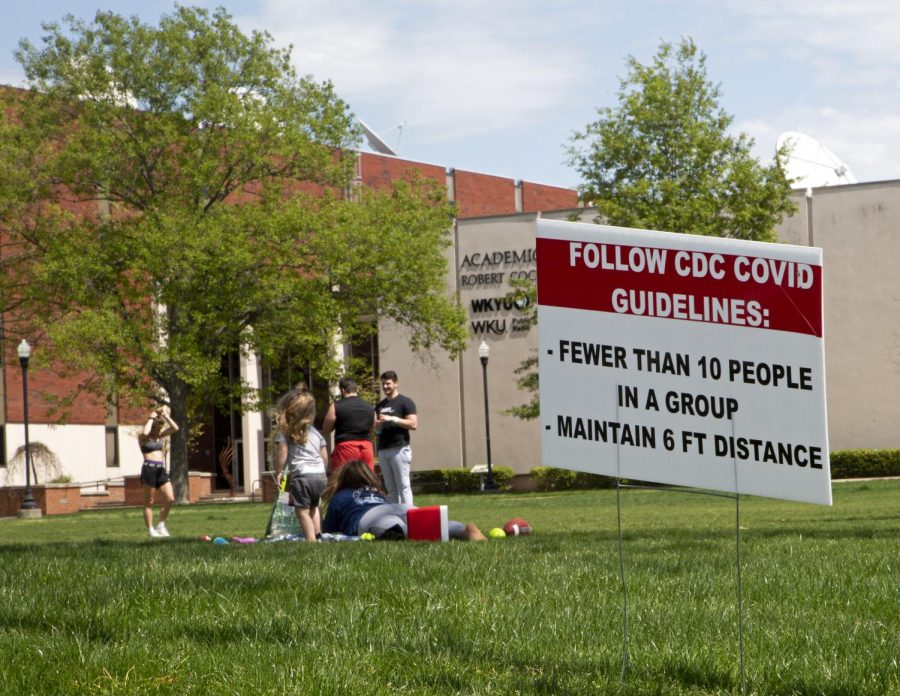Minimal distance: Young adults less likely to follow social distancing
May 8, 2020
This story was published in the May 8 final print issue. Read the full issue here.
With the establishment of hotlines to report non-compliance with social distancing guidelines such as KYSAFER, the practice of self-isolation has become a mandated new normal.
However, according to a rapid review of the psychological effects of quarantine published in The Lanchet, multiple studies have shown several adverse effects of quarantine such as insomnia, deteriorating work performance and emotional exhaustion.
Holly Payne, professor of communication at WKU, cited multiple reasons for why young people find social distancing difficult, such as the uncertainty and sense of loss associated with physical separation from friends and the loss of independence for those returning home.
“No work, no socializing, no independent living and few extracurriculars is difficult especially for young people,” Payne explained.
Payne said humans have a need to connect with others that affects both mental and physical health. She said isolation is connected with high instances of depression, heart disease, high blood pressure and certain cancers.
“While all of that sounds scary, social distancing doesn’t mean that you have to have low quality communication or that you must be in total isolation,” Payne said. “It’s important to reach out to friends and family and to stay connected in any way you can.”
Payne said social distancing makes building and maintaining relationships harder, though she also said that research indicates that people can develop meaningful connections online.
“It’s interesting that although as a society we have come to rely on technology for connecting with people via social media or texting, social distancing shows us that face-to-face communication is still important and the preferred channel for communicating with people that are close to us,” Payne said.
Karl Laves, associate director of the WKU Counseling Center, also provided his perspective on why social distancing is so difficult from his perspective as “a psychologist, as a parent and as a human.”
Laves said he is unsure that young adults are worse at maintaining social distancing.
“Young adults, in every generation, tend to be stereotyped as impulsive, attention seeking and feeling like they are invulnerable,” Laves said in an email. “This may be due, in part, to the fact that they are (relative to their culture) experiencing a new level of freedom or autonomy, in the early and strong phase of their sexual lives, and are only recently experiencing brain growth/development that will lend itself to taking a more cautious and responsible view of life.”
Laves said because young adults are typically at lower risk for COVID-19, they might think they need to be less careful. Others, according to Laves, may not practice social distancing as an expression of their political identity.
“If people are not practicing social distancing then I would assume, as a psychologist, that they are either being selfish or they are not understanding the reality of this virus,” Laves said. “But either way, education is the best solution.”
News reporter Abbey Nutter can be reached at [email protected]. Follow her on Twitter @abbeynutter.















